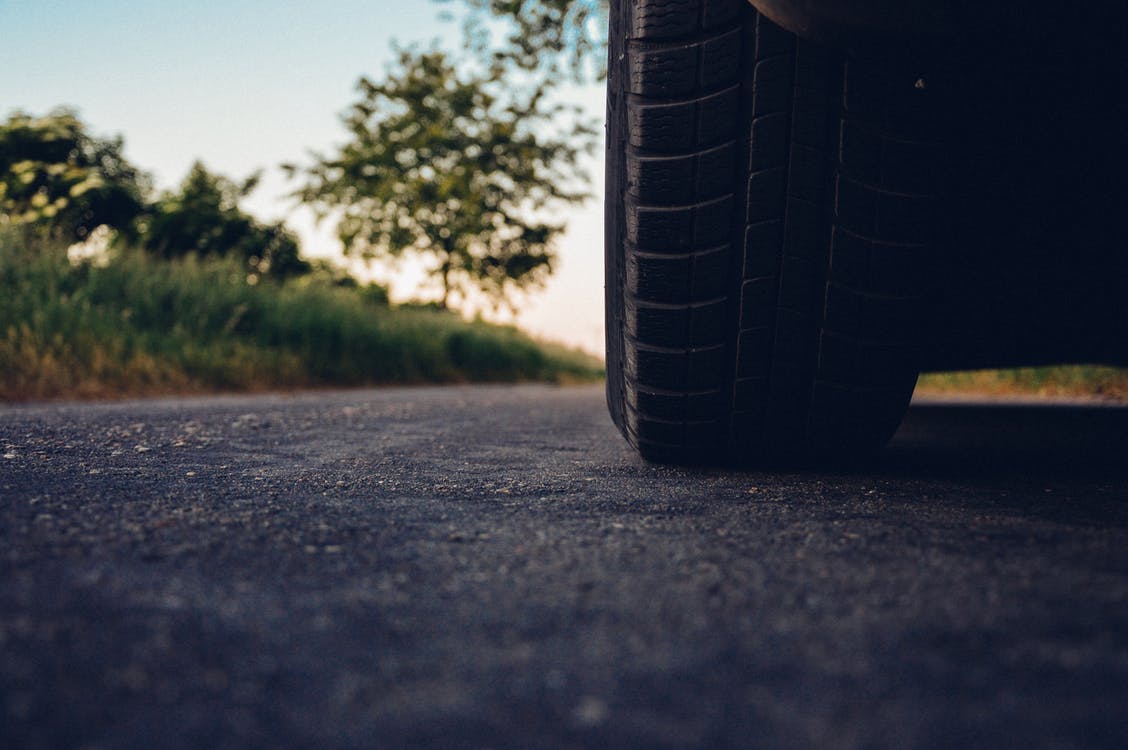 14 Jan
14 Jan Intro To Classic Car Tires
- Posted by Car Guy
- 0 Comment(s)
Your car’s tires are one of the single most important safety features. They are the only contact point between the car and the road and are responsible for accelerating, breaking, and safe handling on the road. Whether fitted onto a commuter car or your collectible Oldsmobile Cutlass Supreme that’s only taken out for the rare pleasure cruise or car show, the tires must be up to par.
Bias-ply Vs Radial
Modern tires and those originally fitted onto our favorite classic cars may look the same, but there’s an important difference in design. Almost all modern tires are radials, as opposed to the bias-ply that came stock with most classic cars.
Bias-ply tires have the layers of chord angled against one another inside the tire creating a criss-cross pattern.
Radial tires have the plies (layers) positioned so that the cords all run alongside one another.
Bias-ply tires have a built in problem; the criss-cross pattern created by the cord layers creates lots of friction. That friction quickly becomes excess heat which wears down the tread area more quickly. The excess heat also limits the tire’s ability to flex, hurting the vehicle’s handling. The decreased handling creates a drifting or “wandering” feel in the handle of the vehicle. That is, that the car will follow the grooves in the road like a toy slot car unless the driver actively steers the car out of them.
Radial tires take care of all of these problems by eliminating the cause. The extra friction created by the crisscrossing plies isn’t there. Additionally, radial design permits for more flexing in the tires, and improved absorption of bumps and divots in the road. This increased handling, ride comfort, traction, and mileage.
Whether you want a truly authentic refurbishing, or a more comfortable ride that is a bit safer to boast is your choice.
An Easy Solution to A Less Than Obvious Problem
With that said, you do have to do a bit of work to fit a radial tire onto most classic cars since radial and bias-ply tires use different measurement standards.
There are two stamps on all modern tires. The first is the federally mandated alphanumeric code that contains information about the tires size compatibility. The second is the Uniform Tire Quality Grading System (UTQG). You can learn how to read a UTQG marking here.
If you look at a tire and see an alphanumeric code that reads P200/65R14 90S you would decipher it like this; The “P” stands for passenger vehicle tires. The 200 refers to the total width of the tires as measured in millimeters. The 65 refers to the aspect ratio (the ratio of the tire’s height to its width). The “R” represents radial, and the final number and letter are representative of the tire load index and speed rating.
So, now you need to know how to translate those into measurements that work for classic cars. Let’s say you are putting radial tires on a car that was originally fitted with bias tires measured at 6.00×14. You need to get as close as possible to that size with a radial measurement.
The first number, the 6.00 is the tread width in inches. The second number, 14, is the wheel size in inches. We need to convert these into metric units.
2.54 centimeters = 1 inch. So, with a little bit of buffer room we multiply 6.50 by 2.54 and get 16.50 centimeters, or 165 millimeters.
Next, we need to figure out what the aspect ratio is; this is the ratio of width to height above the rim of the car. For our example, assume our car has an 80% aspect ratio. We would look for radial tires that are as close to this as possible.
What To Do Next
These choices all come with trade-offs in terms of handling and appearance. There is no end all argument for one being all around better than another, it just comes down to what you prefer and how you will be using, or not using, your classic car.
If you need any advice on how to outfit your Oldsmobile, you can contact us today.
